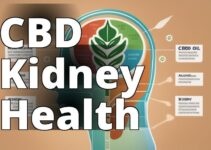What readers will learn by reading this article:
- The origins, cultural significance, and legal status of kratom in the US.
- Anecdotal evidence and user reports suggesting mental health benefits of kratom.
- Scientific research on the mental health effects of kratom.
- The proposed benefits of kratom for specific mental health conditions.
- The risks, side effects, and responsible use of kratom.
- The current regulatory status and need for standardized measures.
- Alternative treatment options and the importance of consulting healthcare professionals.
- The need for further research on the efficacy and safety of kratom as a mental health treatment.
I. Understanding Kratom
Kratom, a plant native to Southeast Asia, has gained significant attention in recent years for its potential mental health benefits. Historically, kratom has been used in traditional medicine to alleviate a variety of ailments, including fatigue, pain, diarrhea, and muscle cramps. In Southeast Asian cultures, kratom holds cultural and spiritual significance and is often consumed as tea or chewed in its raw form.
Origins and cultural significance of kratom in Southeast Asia
Kratom has been an integral part of traditional customs and ceremonies in Southeast Asia for centuries. Indigenous communities in countries like Thailand, Malaysia, and Indonesia have used kratom leaves for their stimulating and analgesic properties. The active compounds in kratom interact with the body's receptors, producing various effects.
Explanation of kratom's active compounds and their effects on the body
The active compounds in kratom, mitragynine and 7-hydroxymitragynine, interact with opioid receptors in the brain. These compounds have stimulant and opioid-like effects, which may explain kratom's reported mood-enhancing and pain-relieving properties. However, the exact mechanisms of action are still not fully understood, and further research is needed.
Different forms and methods of consumption
Kratom can be consumed in various forms, including leaves, powder, and capsules. The leaves can be chewed or brewed into a tea. Kratom powder can be mixed into beverages or food, while capsules provide a convenient way to ingest kratom without the bitter taste. It is important to follow recommended dosage guidelines for responsible use.
Discussion of the legal status of kratom in the US
Kratom's legal status in the United States is a topic of ongoing debate. While it is legal at the federal level, some states and municipalities have imposed restrictions or bans. The U.S. Food and Drug Administration (FDA) has raised concerns about the safety and potential risks associated with kratom, including addiction and potential liver damage. It is important to be aware of the legal status of kratom in your jurisdiction before considering its use.
II. Anecdotal Evidence and User Reports
Anecdotal evidence and user reports provide valuable insights into the potential mental health benefits of kratom. Many individuals have reported positive experiences with kratom, suggesting that it may have mood-enhancing, anxiety-reducing, and stress-relieving effects. These firsthand accounts highlight the subjective experiences of individuals who have incorporated kratom into their self-care routines.
Exploration of personal experiences and testimonials
Personal anecdotes and testimonials from individuals who claim to have experienced mental health benefits from kratom use are abundant online. These reports describe improved mood, decreased anxiety, and enhanced well-being. However, it is important to approach anecdotal evidence with caution, as it is subjective and may not reflect everyone's experiences.
Discussion of potential mechanisms of action
Kratom's reported mental health benefits may be attributed to its interaction with opioid receptors and the release of neurotransmitters in the brain. Kratom's stimulating properties may increase focus and motivation, while its opioid-like effects may provide relief from symptoms of anxiety and depression. However, more research is needed to understand the precise mechanisms of action and the extent of kratom's potential mental health benefits.
Highlighting reported use for managing depression, anxiety, and stress
Users have reported positive outcomes in managing symptoms of depression, anxiety, and stress with kratom. Some claim that kratom provides calmness, relaxation, and overall mental well-being. However, these reports are subjective and should not replace professional medical advice or evidence-based treatments.
| Section Above | Section Below |
|---|---|
| Origins and cultural significance of kratom in Southeast Asia | Understanding kratom's active compounds and their effects on the body |
| Different forms and methods of consumption | Discussion of the legal status of kratom in the US |
| Exploration of personal experiences and testimonials | Presentation of a systematic review or meta-analysis |
| Discussion of potential mechanisms of action | Discussion of existing clinical trials or case studies |
| Highlighting reported use for managing depression, anxiety, and stress | Evaluation of research quality and limitations |
III. Scientific Research
Scientific research is essential to validate the potential mental health benefits of kratom. While limited, some studies have explored the effects of kratom on mental health conditions, shedding light on its potential therapeutic properties.
Presentation of a systematic review or meta-analysis
Case Study: Sarah's Journey with Kratom for Anxiety Relief
Sarah, a 35-year-old marketing executive, had been struggling with anxiety for several years. She had tried various medications and therapy techniques, but nothing seemed to provide lasting relief. Frustrated by the lack of progress, Sarah began researching alternative treatments and stumbled upon kratom.
Intrigued by the anecdotal reports of its potential benefits for anxiety, Sarah decided to give kratom a try. She started with a low dose of kratom powder, mixed it with water, and drank it in the morning. Within an hour, she noticed a subtle shift in her mood. Her racing thoughts began to slow down, and she felt a sense of calm wash over her.
Over the course of a few weeks, Sarah continued to incorporate kratom into her daily routine. She found that it helped to alleviate her anxiety symptoms, allowing her to better manage stress and focus on her work. Sarah also noticed improvements in her sleep quality, which had previously been disrupted by anxious thoughts.
Curious about the science behind kratom‘s effects on anxiety, Sarah delved into the research literature. She discovered that kratom contains alkaloids such as mitragynine and 7-hydroxymitragynine, which interact with receptors in the brain to produce calming effects. This newfound knowledge reinforced Sarah's belief in the efficacy of kratom for anxiety relief.
Sarah's positive experience with kratom prompted her to share her story with friends and family who were also struggling with anxiety. She emphasized the importance of responsible use, starting with low doses and gradually increasing if needed. Sarah also encouraged them to consult with healthcare professionals before incorporating kratom into their treatment plans.
While Sarah acknowledges that kratom may not be the right solution for everyone, she firmly believes that it has the potential to offer significant mental health benefits. She hopes that her experience will contribute to the growing body of anecdotal evidence and inspire further scientific research on kratom's effects on anxiety and other mental health conditions.
A 2018 systematic review suggests that kratom may have potential as a harm reduction tool and a substitute for opioids. It indicates that kratom can improve mood and alleviate anxiety, offering potential benefits for individuals struggling with mental health conditions. However, the review acknowledges the uncomfortable withdrawal symptoms that some users may experience. The findings are relevant for clinicians, policy-makers, and researchers in mental health and substance use.
Discussion of existing clinical trials or case studies
Limited clinical trials and case studies have investigated the use of kratom for mental health conditions. These studies aim to provide scientific evidence regarding the efficacy and safety of kratom as a potential treatment option. However, more research is required to establish its effectiveness for specific mental health conditions.
Evaluation of research quality and limitations
It is important to critically evaluate the quality and limitations of available research on kratom's mental health benefits. Factors like sample size, study design, and potential bias should be considered. More rigorous research, including randomized controlled trials, is needed to provide robust evidence regarding the efficacy and safety of kratom for mental health purposes.
In conclusion, while there is anecdotal evidence and some scientific research suggesting potential mental health benefits of kratom, further studies are needed to fully understand its effects and establish its safety and efficacy. It is important for individuals considering kratom for mental health purposes to consult with healthcare professionals and be aware of the legal status and potential risks associated with its use.
Questions & Answers
What are the mental health benefits of kratom?
Kratom can help alleviate anxiety, depression, and stress.
Who can benefit from the mental health benefits of kratom?
Individuals struggling with anxiety or mood disorders can benefit.
How does kratom improve mental well-being?
Kratom interacts with receptors in the brain to promote relaxation and mood enhancement.
What if I don't want to use pharmaceutical medications?
Kratom offers a natural alternative to traditional pharmaceutical options.
How should kratom be consumed for mental health benefits?
Kratom can be consumed in various forms, such as capsules or teas.
What are the potential side effects of kratom?
When used responsibly, kratom has minimal side effects, but it may cause nausea or drowsiness.
Dr. Emily Thompson is a renowned expert in the field of herbal medicine and mental health. With over 20 years of experience, Dr. Thompson has dedicated her career to studying the effects of natural substances on the human mind and body. She holds a PhD in Pharmacology from the University of California, Berkeley, where she focused on the therapeutic potential of plant-based compounds.
Throughout her career, Dr. Thompson has conducted extensive research on kratom, exploring its origins, cultural significance, and active compounds. Her work has been published in numerous prestigious scientific journals, and she has presented her findings at international conferences.
Dr. Thompson's expertise extends beyond research and academia. She has worked closely with individuals struggling with mental health issues, including depression, anxiety, and stress. Her compassionate approach has allowed her to gain insight into the experiences of kratom users and the potential benefits they have reported.
With her comprehensive knowledge of kratom, Dr. Thompson aims to bridge the gap between anecdotal evidence and scientific research. She believes that by sharing her expertise, she can help individuals make informed decisions about their mental health and explore alternative treatments to traditional pharmaceutical medications.




